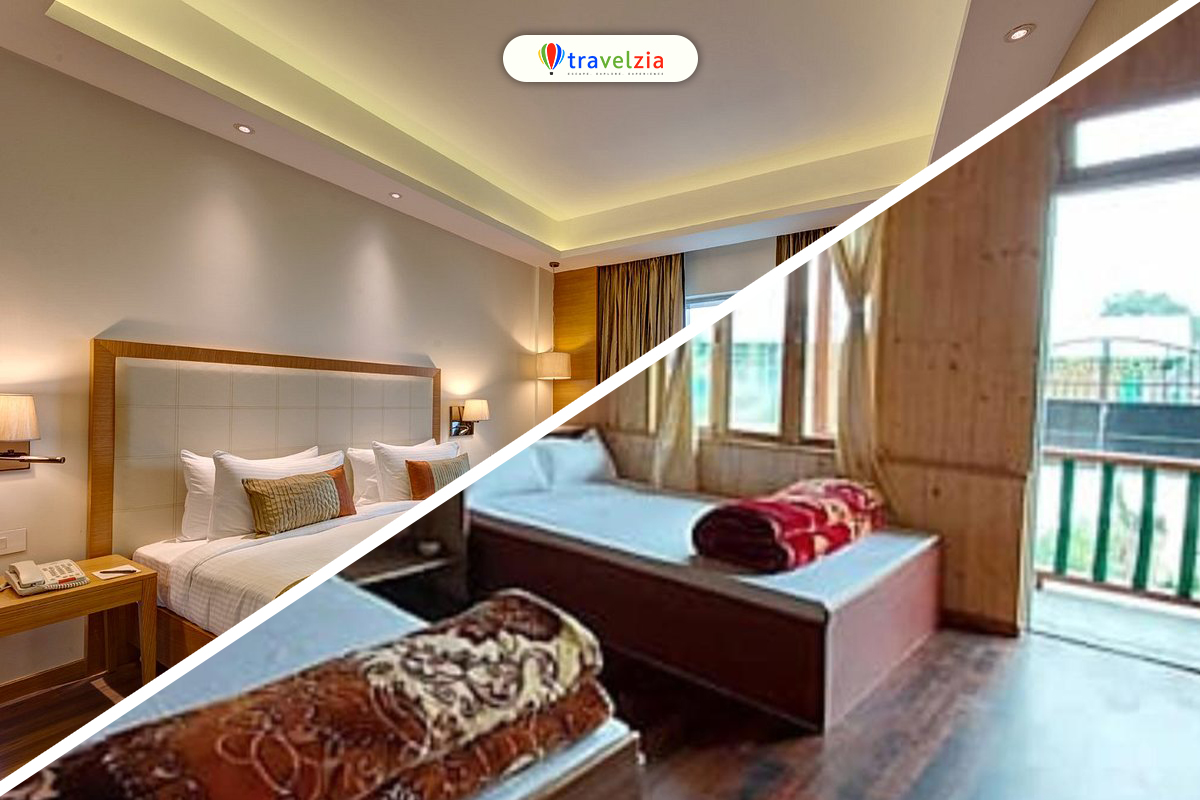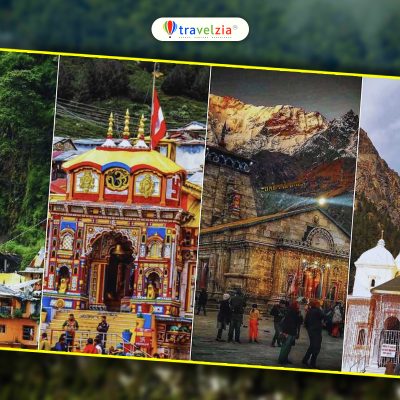The word “travel” instantly brings to mind images of misty mountains, endless seas, lush green fields, or maybe the narrow lanes of an unknown town. But in the middle of that colourful canvas, one question always pops up: “Where will I stay?”
Especially these days, when both hotels and homestays are equally popular, choosing the right one becomes a little tricky. Honestly, I used to feel the same way—until I experienced both myself. And today, I want to share that very experience with you—from a traveller’s lens:
Hotel or Homestay—Which truly makes the journey better?
Hotels: Professional Service & Assured Comfort

Let’s begin with hotels. A hotel is a professional accommodation setup where services are standardized, dependable, and run within a certain system. When you check into a hotel, you’re stepping into a world of rules, timing, and amenities. Think air-conditioned rooms, room service, a lounge, and maybe even a swimming pool or gym—luxury and convenience, all wrapped in a polished package.
For example, during my trip to Darjeeling, I stayed at a 3-star hotel. After a long train journey, I was exhausted. But the moment I entered the room, it felt like a reward—warm tea arrived almost immediately, the heater was on, the bed was spotless, and everything was immaculately arranged. It had the feel of premium comfort.
Why hotels work:
- 24/7 security and professional services
- Cleanliness is consistently maintained
- Meals or breakfast often included
- Usually located in tourist-friendly areas
That said, there’s always a slight formality in the air. You’re a guest, but never quite at “home.”
Homestays: A Slice of Home Away From Home

And then there are homestays. My experience in Ziro Valley, Arunachal Pradesh, is still fresh in my memory. A wooden house, smoke curling out of the kitchen chimney, and I woke up at dawn to the sound of roosters—not alarms. It felt simple on the surface, but the real magic was in that simplicity. The host lady handed me a cup of hot mountain tea she brewed herself, and that moment sealed the connection.
A homestay means you’re staying with a local family as a guest in their home. It’s like staying at a friend’s place, even in an unfamiliar land. You get to eat home-cooked meals—often made with fresh, locally-grown organic veggies—and the warmth of being treated like family. One night, we had rice and meat cooked over a clay stove, followed by long chats about their local festivals and stories with their teenage son.
Why homestays charm travellers:
- Real-time connection with local culture
- Home-cooked meals, often with organic ingredients
- Personalized experiences (like guided village walks, local crafts, or festivals)
- Budget-friendly and often located in serene, offbeat places
Of course, not everything was perfect. The WiFi was patchy, and the bathroom was very basic. And syncing your schedule with the host family’s rhythm is a unique experience in itself—one that not everyone may find easy.
Which One is More Convenient?

Honestly, it depends on your travel style. When we compare the two, some key differences stand out.
- From a security perspective, hotels usually take the lead—with guards, CCTV, and clear policies. Homestays rely more on the trust and warmth of the host family—something that can vary from place to place but often feels very personal and genuine.
- In terms of comfort and relaxation, hotels are predictable—clean bathrooms, room service, and neat arrangements. Homestays, on the other hand, offer a soft blanket, a steaming cup of tea made your way, and the joy of sitting on a balcony soaking in the local life.
- When it comes to food, hotels usually offer buffets or restaurant meals—filling but often lacking local flavour. In a homestay, meals carry stories—what’s cooked, where it came from, and often, how their grandma made it better.
- Cultural immersion is another big differentiator. Hotels maintain a professional boundary—you see the world through your window. But homestays pull you in—you eat with the family, attend local festivals, and maybe even get invited to a village ceremony.
- In terms of personal space, hotels provide clear privacy. In a homestay, you may have to share spaces or interact more—but that’s where beautiful stories and friendships often begin.
- Tech-wise, hotels tend to offer stronger WiFi and modern facilities. Homestays might have limited connectivity, but for many, that’s a chance to digitally detox and be truly present.
- And finally, cost—homestays are usually more pocket-friendly, especially for longer stays or frequent travellers. Hotels tend to be pricier, particularly in tourist hotspots.
In Conclusion: It Depends On What You’re Looking For

When I travel solo, I often prefer homestays. They allow me to feel the place deeply—to walk village roads, talk to locals, and live, not just stay. But when I travel with family, or when work demands consistency and schedule, hotels definitely have their perks—clean rooms, fixed timings, and professional reliability.
These days, I try to blend both. I might check into a hotel on the first day, especially in a city. But once I head toward the hills or countryside, I shift to a homestay. That way, I get security, comfort, and deep connection—all in one trip.
So, hotel or homestay? Both have their beauty. It really depends on why you’re travelling, who you’re with, and how much connection—or solitude—you seek. If you crave predictability and privacy, a hotel is great. But if you’re open to warmth, stories, and a slice of real life, a homestay might just leave a deeper imprint on your heart.
Whichever door you choose—hotel or homestay—it’s your way into a new world. The only question is:
Which door will you open next?
If you enjoyed reading this, don’t forget to share it and drop your thoughts or questions in the comments below!











